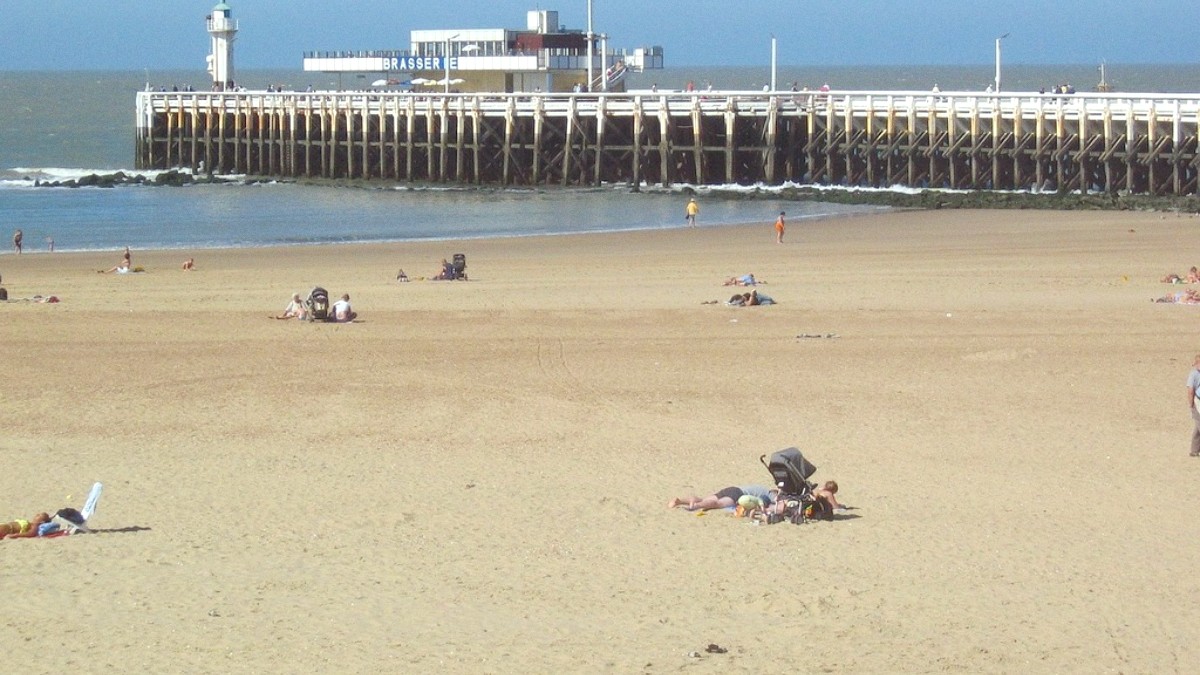
Belgium
Belgian cuisine blends French culinary finesse and Germanic generosity. It emphasizes quality, fresh ingredients and generous portions.
Ostend's proximity to the North Sea significantly shapes the local diet, making seafood a main component of many traditional dishes.
Fresh fish like cod, sole, plaice, and local grey shrimp are common. Mussels mark a seasonal highlight.
Potatoes, most notably as crispy 'frites,' are central. Endives, asparagus, and Brussels sprouts are common vegetables.
Expect rich sauces, beer-infused dishes, and fresh herbs that contribute to the distinct flavor.
A creamy, savory filling with tiny local grey shrimp, breaded, and deep-fried to a golden crisp.
Find this delicacy at many seafood restaurants along the Visserskaai (Fish Quay).
Steamed mussels, often prepared in white wine, herbs, and vegetables, served with Belgian fries. Mussels are seasonal, typically July-April.
Virtually any Belgian brasserie or seafood restaurant offers this dish when in season.
A rich, creamy stew. Traditionally, it comes with fish (Gentse Waterzooi van Vis) or chicken (Gentse Waterzooi van Kip) and various vegetables.
Find this comforting dish in traditional Belgian restaurants throughout the city.
Spiced shortcrust biscuits, notably popular around the holidays.
World-famous pralines, truffles, and chocolate bars from dedicated chocolatiers.
Brasserie Albert (Hotel La Royale) for refined Belgian cuisine with sea views. Le Bassin for gourmet seafood in a modern setting.
Lusitania for fresh fish. Bistro Mathilda for classic Belgian dishes with a modern twist. 't Visserhuis for authentic harbor fish.
Numerous "Frituur" stands for Belgian fries. Waffle stands along the promenade. Sandwich shops and bakeries for quick bites.
Increasing availability, especially in larger restaurants. Dedicated options are growing.
Supermarkets present good options for self-catering if you have specific dietary requirements.
Awareness of gluten-free and common allergens is growing among Belgian restaurants.
Carrying a translation card explaining specific dietary needs is advisable. Learning Dutch phrases like "Ik ben allergisch voor..." is helpful.
Less common in Ostend; available for chocolate/waffles in Bruges/Ghent.
Not typical within Ostend; wider West Flanders offers cheese producers or breweries (car needed).
Oostende voor Anker features food stalls; local markets offer fresh produce.
Fish stalls on Visserskaai; summer beach bars for relaxed dining.
Specific halal or kosher restaurants are very limited.
Travelers with strict kosher requirements usually self-cater, especially outside Antwerp.
Larger supermarkets stock gluten-free and allergen-friendly products.
Learning a few Dutch phrases, like "Ik ben allergisch voor..." (I am allergic to...), is helpful.
French brasseries are alongside other global culinary options.
Engage with local food producers and vendors for an authentic experience.
Experience ultra-fresh seafood directly from the boats. Many stalls offer simply prepared, ready-to-eat seafood.
Enjoy a drink or light meal directly on the beach at one of the many 'Strandbars' during warmer months.
Regular fresh produce and fish markets exist. A direct way to experience local food culture and sample ingredients.
Some local guides offer personalized food tours in Ostend, focusing on fresh seafood and local specialties.
Inquire at the local tourism office for information on available tours.
Patronizing smaller, independent shops and restaurants leads to authentic interactions with local residents.
Directly supporting the community through your culinary choices.
A major international maritime festival (usually May-June) featuring numerous food stalls with seafood and local specialties.
This annual summer music festival often includes a wide range of food trucks and stalls catering to various tastes.
A traditional market held during December, offering festive treats, crafts, and a cheerful atmosphere.
Check for seasonal availability, especially for mussels, to enjoy peak freshness.